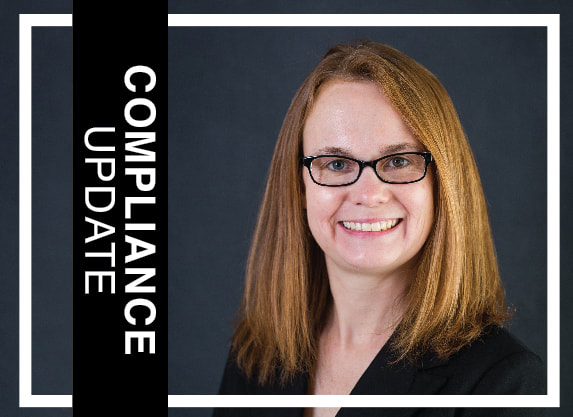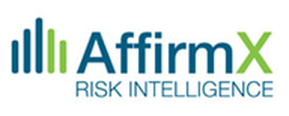|
NCUA Webinar – Loan Risk
The National Credit Union Administration (NCUA) will be hosting a free webinar, Loans Risks in a Changing Economy, on March 22. Registration is open here. During this webinar NCUA regional lending specialist will cover: the impact rising interest rates have on liquidity; identifying and mediating portfolio risks in real estate, vehicle, and commercial lending; CECL accounting implications; and risk-based best practices. FinCEN Alert The Financial Crimes Enforcement Network (FinCEN) recently issued alert FIN-2023-Alert003 concerning the nationwide surge in mail theft-related check fraud schemes, which can be found here. As discussed in the Alert, despite the declining use of checks in the United States, criminals have been increasingly targeting the U.S. Mail since the COVID-19 pandemic to commit check fraud. From March 2020 through February 2021, the United States Postal Inspection Service received 299,020 mail theft complaints, which was an increase of 161 percent compared with the same period a year earlier. After stealing checks from the U.S. Mail, fraudsters and organized criminal groups may alter or “wash” the checks, replacing the payee information with their own or fraudulent identities or with business accounts that the criminals control. The Alert discusses several red flags that credit unions should be aware of – a few of these red flags include:
FinCEN advises that in addition to filing a SAR, as applicable, financial institutions should refer their customers who may be victims of mail theft-related check fraud to the USPIS at 1-877-876-2455 or https://www. uspis.gov/report to report the incident. With regard to SAR filing, FinCEN requests that financial institutions indicate a connection between the suspicious activity being reported and the activities highlighted in this alert by including the key term “FIN-2023- MAILTHEFT” in SAR field 2 (“Filing Institution Note to FinCEN”), as well as in the narrative, and by selecting SAR Field 34(d) (check fraud). NCUA Letter to FCUs The National Credit Union Administration (NCUA) has issued a letter to Federal Credit Unions, 23-FCU-02, concerning the permissible loan interest rate ceiling, which can be found here. The letter announces the extension of the temporary 18-percent interest rate ceiling for loans made by federal credit unions through September 10, 2024. CFPB Reporting on Junk Fees The Consumer Financial Protection Bureau (CFPB) recently issued a report on unlawful junk fees that it uncovered, which can be found here. The report discusses a number of instances where the CFPB, through its supervision efforts, identified violations of law in connection with fees. To highlight a few of the findings and beginning with deposit accounts, the CFPB cited institutions for unfair unanticipated overdraft fees for transactions that authorized against a positive balance, but settled against a negative balance (APSN). You may recall that the CFPB previously issued Circular 2022-06, Unanticipated Overdraft Fee Assessment Practices, to provide guidance on this topic. The report explains that the CFPB, “found instances in which institutions assessed unfair APSN overdraft fees using the consumer’s available balance for fee decisioning, as well as unfair APSN overdraft fees using the consumer’s ledger balance for fee decisioning. Consumers could not reasonably avoid the substantial injury, irrespective of account-opening disclosures.” Another hot topic for CFPB Supervision was multiple NSF fees for the same transaction. Through its supervision, the CFPB found “that institutions engaged in unfair acts or practices by charging consumers multiple NSF fees when the same transaction was presented multiple times for payment against an insufficient balance in the consumer’s accounts, potentially as soon as the next day. The assessment of multiple NSF fees for the same transaction caused substantial monetary harm to consumers, totaling millions of dollars. These injuries were not reasonably avoidable by consumers, regardless of account opening disclosures.” To emphasize the point made above – in both scenarios, CFPB did not appear to care what account opening disclosures had to say on the matter, still an unfair act or practice per the CFPB. The CFPB also looked at auto servicing and again took issue with what the CFPB found to be “UDAAPs related to junk fees.” Among the fees discussed in the report, the CFPB found that servicers engaged in unfair and abusive acts or practices by charging and profiting from payment processing fees that far exceeded the servicers’ costs for processing payments. Examiners observed that the servicers only offered two free payment options—preauthorized recurring ACH and mailed checks—which are only available to consumers with bank accounts. Approximately 90 percent of payments made by consumers incurred a pay-to-pay fee. With regard to mortgage servicing, the CFPB s identified a number of UDAAPs and a Regulation Z violation related to junk fees. CFPB examiners found that servicers charged consumers junk fees that were unlawful related to late fee amounts, unnecessary property inspection visits, and private mortgage insurance (PMI) charges that should have been billed to the lender. Servicers also failed to waive certain charges when consumers entered permanent loss mitigation options and failed to refund PMI premiums. And servicers charged consumers late fees after sending periodic statements representing that they would not charge late fees. To expand on the PMI finding, the report explains in more detail that the Homeowners Protection Act (HPA) requires that servicers automatically terminate PMI when the principal balance of the mortgage loan is first scheduled to reach 78 percent of the original value of the property based on the applicable amortization schedule, as long as the borrower is current. CFPB found that servicers violated the HPA when they failed to terminate PMI on the date the principal balance of the mortgage was first scheduled to reach 78 percent loan-to-value on a mortgage loan that was current. As a result, consumers made overpayments for PMI that the servicers should have cancelled. Compliance Solution Highlight What can help your credit union meet compliance challenges in a proactive and cost efficient manner? Take a three minute break from reading and learn how AffirmX can help you - http://youtu.be/27TLDXcjETE AffirmX Risk Intel Center helps credit unions adhere to government regulations in a proactive and cost efficient manner through a patented, cloud-based platform that is customized and branded for your institution. The platform draws on internal and external data sources to develop risk-based priorities to help you quickly identify issues, reduce costs and streamline compliance management practices. Unlike checklist-based systems that place the burden for understanding compliance requirements on your team, Risk Intel Center combines easy-to-use workflows with expert analysis and a risk-based dashboard to help your team stay on top of compliance issues ranging from BSA and IT Security to Fair Lending and Enterprise Risk. Looking for just one audit? AffirmX can be tailored to meet the needs of your credit union including offering individual audits – such as BSA Independent Audit, annual ACH Independent Audit, SAFE Act Independent Audit and Website Compliance Review. Pick just one or bundle the four audits together and save! For Questions or quotes – contact Amy Kleinschmit [email protected]. Comments are closed.
|
The MemoThe Memo is DakCU's newsletter that keeps Want the Memo delivered straight to your inbox?
Archives
July 2024
Categories
All
|
|
Copyright Dakota Credit Union Association. All Rights Reserved.
2005 N Kavaney Dr - Suite 201 | Bismarck, North Dakota 58501 Phone: 800-279-6328 | [email protected] | sitemap | privacy policy |






